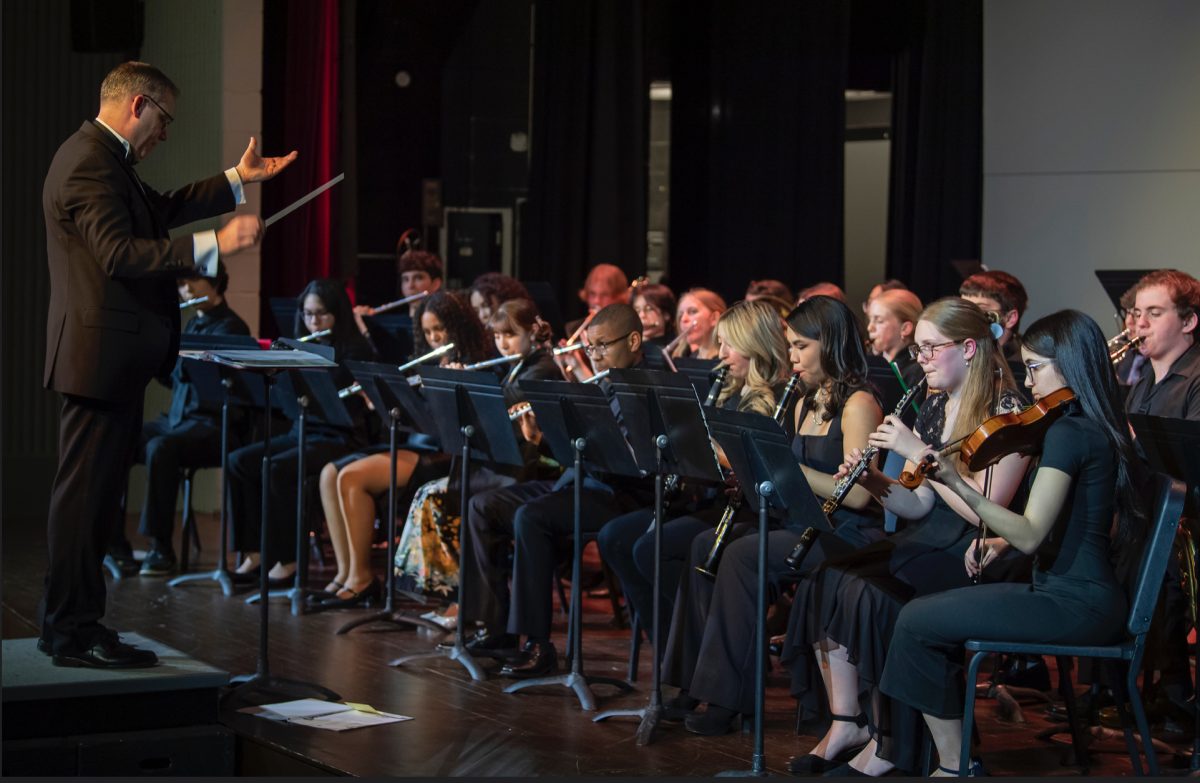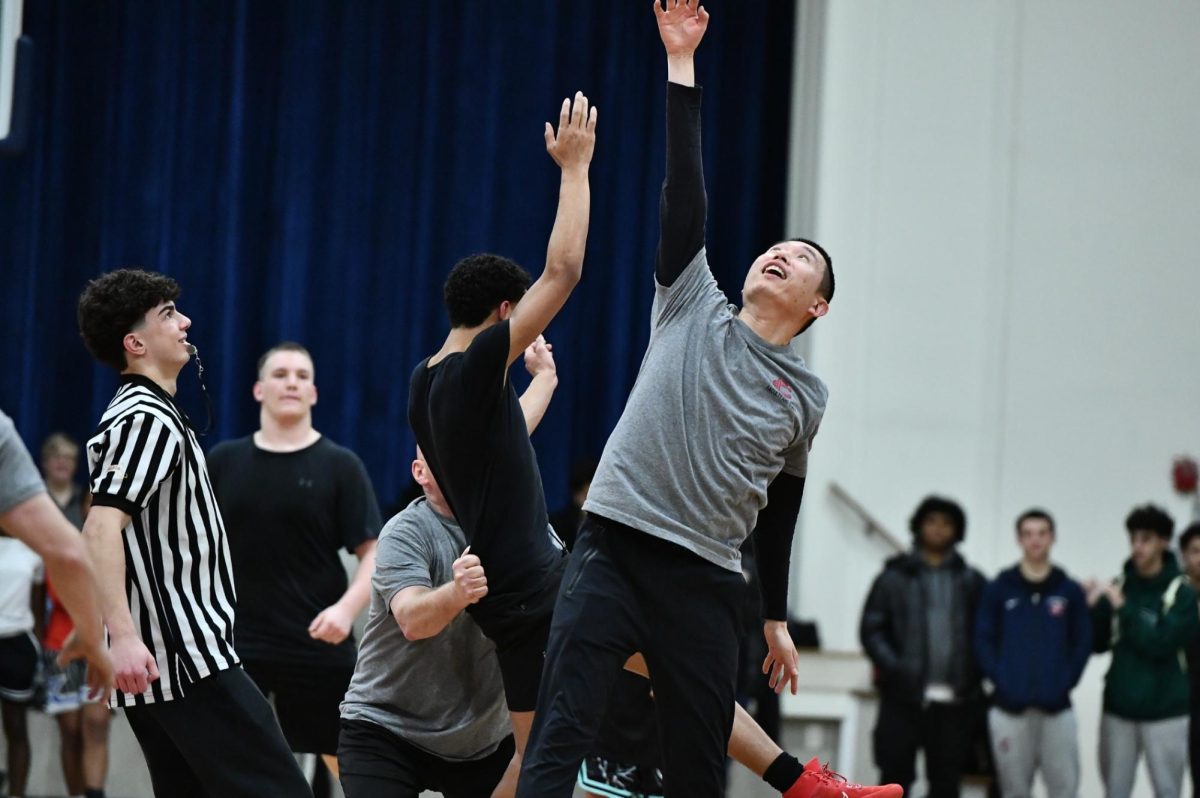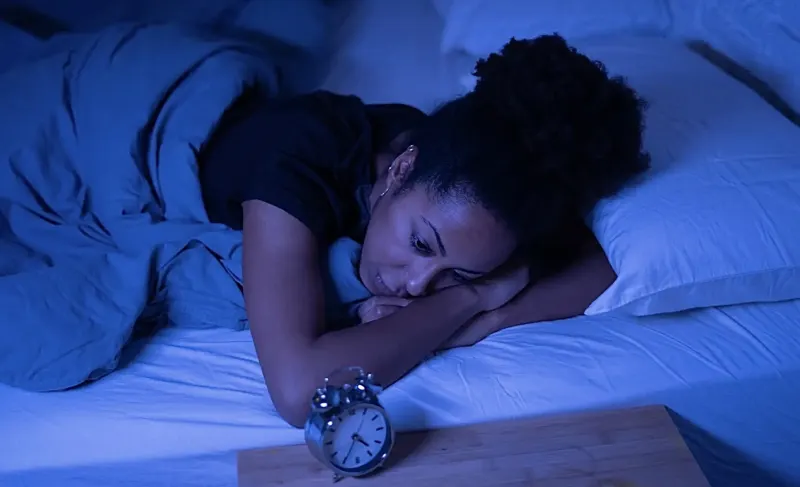There’s nothing better than when I finish all my homework before 9:30 P.M. I can finally get to bed on time and maybe even fix my terrible sleeping patterns. I get into bed, look at the clock, it’s 10 P.M. I close my eyes…and almost immediately, my eyes snap back open. I don’t feel tired. Give it time, I say to myself. So I wait. For an hour. I check the clock again, it’s 11:05.
Why can’t I sleep? Eventually my eyes feel heavy and I fall asleep- just to wake up six hours later, and I’m exhausted. At school, nothing makes sense, I can’t keep up with simple conversations, and homework takes me hours because I can’t think, making me go to bed late and wake up tired again. This is going to be a long week…
Although this is my regular experience, this is also the story for many high school students around the globe. The National Sleep Foundation states that teens “need about eight to 10 hours of sleep each night.” Brittney McNamara, a wellness news editor at Teen Vogue, also reports that a study conducted by the Sleep Foundation found that a mere 15% of teens get 8 ½ hours of sleep on school nights. This leaves the remaining 85% sleep deprived.
According to Hina Talib and Shelby Harris, adolescent and behavioral medicine specialists, “there is a natural biological shift in the circadian rhythm by one to 2 hours, meaning that there is a natural delay in the brain’s secretion of melatonin, leading to later bed and wake times”. This makes a teenager’s natural bedtime around 11 pm. So even if a teen is in bed by 10, they won’t start to feel tired for another hour; they just can’t fall asleep!

Fortunately, there is a solution. Schools can delay their start time to start after 8:30 a.m.. Delayed starts will align with adolescents’ natural sleep patterns giving them adequate amounts of sleep that they need. High schools should delay their start times to prevent declining academic performances and terrible mental health effects. High schoolers do a lot during the school year, but that energy has to come from somewhere. We have to go to school five times a week for 10 months. We are expected to get to school on time and apply ourselves to what we are learning, all while waking up at ungodly hours in the morning to get to school for 7:30. Then when we’re tired, falling asleep in class, or struggling to solve a trinomial equation first period, teachers wonder why the students are not learning and are unfocused. The answer? Not enough sleep. High school students are waking up too early. This makes it extremely hard for teens to function at school.
Source for above: taylor in time

David Polochanin, an English teacher at Gideon Welles School in Glastonbury, Connecticut, stated that with adequate sleep, students will have clear minds that will lead to less cognitive impairment, fewer problems with attention and memory, higher academic achievement, better attendance, and lower dropout rates.
A 2014, three-year study by the University of Minnesota showed that students whose high schools changed their schedules to start at 8:30 A.M. or later improved their performance in English, math, science, social studies, and standardized tests (Polochanin). In other words, delayed start times have an overall beneficial effect on students’ academic performances.
In addition, delayed starts help with students’ in-school behavior as the American Psychological Association affirms that “insufficient sleep increases the likelihood of disciplinary issues and classroom conflict”. When Nauset Regional High School in Massachusetts delayed their start time to 8:35, they saw “fewer failing grades and suspensions.” With delayed start times, high school students will gain the sufficient amount of sleep needed which will lead to an overall better experience in the classroom.

Delaying school start times will similarly improve adolescents’ overall health and lifestyles. If teenagers are getting the amount of sleep that they need during the week, there won’t be a need for “catch up” Saturdays, where teens sleep in until 1 pm to make up for the lack of sleep during the week. Talib and Harris wrote that the later start times of remote learning “increased their [teen clients] sleep during weeknights, decreased Saturday sleep-ins needed to recoup lost sleep, [and] allowed for family breakfasts.” So, delayed school start times also open the opportunity for more time with families. Source: pexels

Another concern about sleep deprived high schoolers is groggy student drivers. Alarmingly, “The Sleep Foundationnotes that drowsy driving causes more than 100,000 crashes every year, and can be just as bad as driving drunk.” If we continue to make high school students wake up before they should, the roads will no longer be safe for anyone. Source: pexels
Lack of sleep is also a cause for many physical and mental problems. In his article, Polochanin reports that when teens don’t get a sufficient amount of sleep, they’re at risk for obesity and diabetes- according to the American Academy of Pediatrics. He goes on to say that mental health issues could include “anxiety, depression and decreased motivation.” Furthermore, in Saco, Maine, schools that have delayed their start times have seen “an almost 50% drop in visits to the nurse.” Since many schools have tried it and have seen tremendous results, why can’t all schools follow their lead? If all these benefits are the result of moving back high school start times, why aren’t all schools switching?

Teachers and administrators have raised many issues with later start times. The first is transportation. How will schools be able to stagger bus schedules with the high schoolers starting late? If all schools start at the same time, schools will have to hire more buses, which requires more funding. However, this is not a problem because schools could switch their start times. Elementary school would start earlier, and middle and high school would start later. Elementary students’ circadian rhythms haven’t shifted yet, and most go to bed early, so they won’t have any issues with getting up early.
Another worry is that delaying school start times will not prepare students for adulthood. When they get jobs, their job may require them to wake up before they would like to (“School Start Times”). However, by the time students have jobs, their circadian rhythms will have shifted back. They would now be able to wake up at the appropriate time their profession requires.
So, should CCHS follow the lead of other local schools and delay their start time? Should we delay our school day to 8:30-3? Or should we continue with tradition and keep to our current schedule? Let me know what you think in the comments!



























